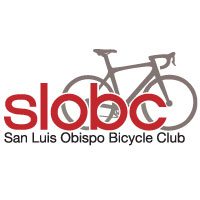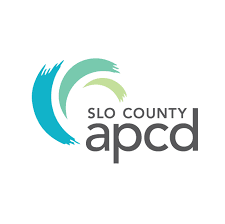How San Luis Obispo Established the Most Powerful Bike Funding Policy in the Nation
By Eric Meyer and Dan Rivoire.
Eight years of careful planning — and a bit of luck — just paid off in a big way for the San Luis Obispo Bicycle Coalition. The central California city recently amended its transportation plan (known as the “Circulation Element” of the general plan) in three very innovative ways.
First, the city revised its transportation mode objectives, dramatically increasing the bike and pedestrian trip goals.
The new mode split goal:
50 percent motor vehicles
12 percent transit
20 percent bicycles
18 percent walking, car pools, and other forms
This is one of the most pedestrian- and bike-centric modal split objectives in the United States.
Second, the city changed its roadway analysis from Level of Service to Multi-Modal Level of Service.
San Luis Obispo rejected Level of Service — an outdated standard that measures transportation projects only on the basis of automobile delay — in favor of Multi-Modal Level of Service. MMLOS puts all modes on a level playing field so that the needs of one mode may only trump the needs of another in a manner designated by the modal hierarchy given to that location.
With this MMLOS objective in mind, the city re-prioritized the modal hierarchy of all of its streets. Some high-traffic arterials are automobile-focused, then transit, then bikes, then peds. Other streets have different hierarchies. Residential neighborhood streets are prioritized for pedestrians first. Major arterials are prioritized for transit first. It is a complex “complete streets” effort that will balance the needs of all modes in the city over time as streets are rebuilt or modified.
Third (and most important!): The city created a policy that allocates general fund transportation spending by mode to match the mode share percentage goals desired.
If you remember only one thing from this article, this is it.
This policy mandates that our city must allocate general fund transportation spending at the same ratio as the mode share goal desired. Meaning 20 percent of funding needs to go to bicycling.
This is a huge shift from business as usual in America.
These changes didn’t happen all at once. They happened over the course of about eight years under the guidance of many minds at the Bicycle Coalition and with the help of many hundreds of citizens. If we had tried to make this all happen at once during a Circulation Element update, we would have failed.
It happened because we focused on the smallest relevant plans first. San Luis Obispo’s first opportunity for meaningful policy change came when the City Planning Commission was approving a Climate Action Plan, with the aim of reducing the city’s greenhouse gas emissions. One of the suggested strategies in this plan was to decrease single occupancy vehicle trips. One way to do that is to encourage an increase in the mode share of alternative modes such as biking and walking. Eric pitched the idea of pushing the bike mode share goal to 20 percent, thinking that we might get 15 percent as a compromise. But in a surprise vote, the entire planning commission agreed to the new 20 percent bike mode share goal.
In the context of the Climate Action Plan this bike mode share increase didn’t seem that controversial, and the audience in the Planning Commission chamber that night was very enthusiastic. The City Council later easily approved the new Climate Action Plan.
The trouble was that other older city plans, like the Bicycle Master Plan and the city Circulation Element, still had the old 10 percent bike goal. (Note that the current bike mode share is only about 6 percent.) So a year or two later, when the Bicycle Master Plan came up for review, it was modified to match the Climate Action Plan. Since city staff were able to explain that they were merely updating the bike plan to match the more recent climate action plan, it went through without a hitch.
A few years later, the city’s transportation and land use plan, known as LUCE (for “Land Use Element and Circulation Element”) came up for review and updating. Eric was appointed chairman of the citizen task force dedicated to overseeing the update. The task force again debated increasing the modal goal over what was in the old LUCE, but what ultimately led to them to approve it was the simple fact that the Planning Commission and City Council had already approved that figure in the two other plans years before.
In addition to this new modal split objective, the new MMLOS policy and the requirement to allocate transportation funding in the same ratio as the desired modal split were also incorporated into the transportation and land use update.
This 20 percent mode bike mode share goal would never have been approved in the LUCE had it not already been part of the two smaller plans.
This is a key point and may be a pathway that others can follow to create similar changes in other jurisdictions.
Meanwhile, Dan was elected to City Council shortly after the City Planning Commission approved the LUCE update, so when it came before the council, his was the deciding vote that approved it and he is now in a position to help shepherd the new prioritization of funding. Our work to get a place on city boards, as bike advocates, paid off.
Together these new policies create one of the strongest funding mechanisms for bicycle infrastructure in the nation. We hope that other cities might be able to learn from our efforts.
None of this would have been possible without the efforts of hundreds of members of the public and the tireless efforts of many Bicycle Coalition Advocates who showed up at City Planning and City Council meetings to voice their concerns and desires. It is the public that creates the demand and the advocate’s job is simply to help the public and the city find the way forward.
Originally published by the kind folks at The Alliance for Biking and Walking.
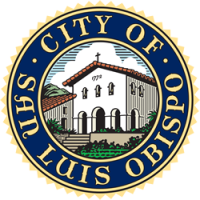 “The City of San Luis Obispo invites you to a neighborhood meeting on Thursday, March 24, 2016, 6:00 PM – 8:00 PM at the City/County Library, 995 Palm Street, to kick of the process for developing the Broad Street Bicycle Boulevard Plan. The project is intended to provide a through route for bicyclists and pedestrians serving the downtown core and neighborhoods to the north. The Plan will look at Broad Street from Ramona Street toMonterey Street, including a future bicycle/pedestrian overcrossing of Highway 101. Your participation at this meeting is valuable and appreciated. To subscribe to project updates and/or provide feedback on the project, visit the City’s online forum at https://www.peakdemocracy.com/3444.
“The City of San Luis Obispo invites you to a neighborhood meeting on Thursday, March 24, 2016, 6:00 PM – 8:00 PM at the City/County Library, 995 Palm Street, to kick of the process for developing the Broad Street Bicycle Boulevard Plan. The project is intended to provide a through route for bicyclists and pedestrians serving the downtown core and neighborhoods to the north. The Plan will look at Broad Street from Ramona Street toMonterey Street, including a future bicycle/pedestrian overcrossing of Highway 101. Your participation at this meeting is valuable and appreciated. To subscribe to project updates and/or provide feedback on the project, visit the City’s online forum at https://www.peakdemocracy.com/3444.
 The SLO County Board of Supervisors is considering a big step toward extending the Bob Jones Trail on Tuesday, Feb. 24: certifying the Final Environmental Impact Report (EIR) for a 4.5-mile extension of the trail from the historic Octagon Barn on Higuera Street to the trail’s staging area on Ontario Road. The board is also considering approving the trail’s alignment, which includes undercrossings of San Luis Bay Drive and Highway 101.
The SLO County Board of Supervisors is considering a big step toward extending the Bob Jones Trail on Tuesday, Feb. 24: certifying the Final Environmental Impact Report (EIR) for a 4.5-mile extension of the trail from the historic Octagon Barn on Higuera Street to the trail’s staging area on Ontario Road. The board is also considering approving the trail’s alignment, which includes undercrossings of San Luis Bay Drive and Highway 101.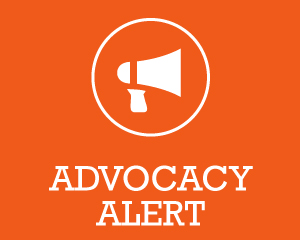
 The law states that motorists must maintain a distance of at least three feet when passing a bicyclist.
The law states that motorists must maintain a distance of at least three feet when passing a bicyclist. the Bicycle Coalition’s Interim Education Director, as she rode her bike down Pacific Street in front of Bicycle Coalition headquarters in San Luis Obispo.
the Bicycle Coalition’s Interim Education Director, as she rode her bike down Pacific Street in front of Bicycle Coalition headquarters in San Luis Obispo. The Bicycle Coalition and our allies (including the San Luis Obispo Bicycle Club, The Slabtown Rollers and even Caltrans) got involved, writing letters and testifying before the Commission about the many benefits of a wider paved shoulder:
The Bicycle Coalition and our allies (including the San Luis Obispo Bicycle Club, The Slabtown Rollers and even Caltrans) got involved, writing letters and testifying before the Commission about the many benefits of a wider paved shoulder: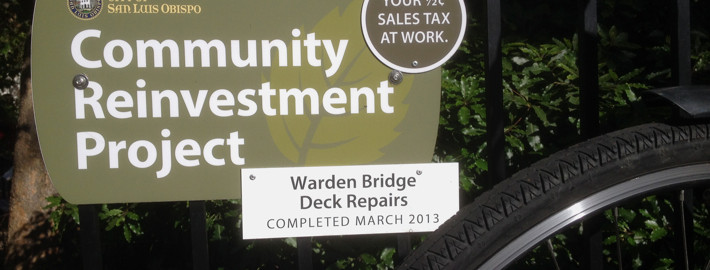

 It’s been a literal whirlwind of a week in Washington DC. Amid several inches of snowfall and high winds, the brightest minds and leaders of the national bicycle movement converged to advance efforts towards a more bicycle friendly America.
It’s been a literal whirlwind of a week in Washington DC. Amid several inches of snowfall and high winds, the brightest minds and leaders of the national bicycle movement converged to advance efforts towards a more bicycle friendly America.



